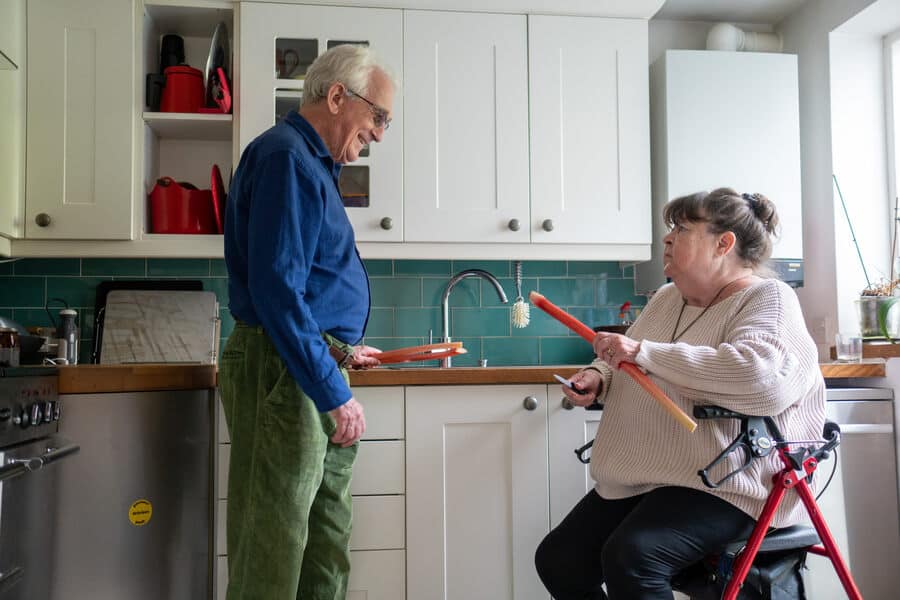Report reveals dementia and poor mobility are the primary drivers for homesharing
The Homeshare Association, which aims to strengthen collaborations between the homeshare market and the health and social care sector, has released a report which provides a unique insight into the current homeshare market and what’s on the horizon.
One of the key findings of the report reveals that the primary drivers for seeking a homeshare arrangement are poor mobility, 30 per cent, and dementia, 26 per cent.
Homeshare matches older people who need some help to live independently in their own home with younger people (often aged between 20 and 50), who provide a low level of practical support such as shopping, cooking meals, or light gardening, in exchange for accommodation.
Homeshare is a valuable health and social care model, and as the report confirms, benefits many types of people. It is particularly beneficial for older people living with dementia, Parkinson’s disease, or those who have mobility issues or are socially isolated.
The list of primary drivers for homeshare arrangements also includes, poor eyesight, deafness, bereavement, falls risk, bipolar disorder, heart/lung risk, and memory issues.
The report confirms that homeshare is a flexible service which sits well amongst other support services, such as domiciliary care, and 100% of older people in a homeshare arrangement report a positive impact on their health and wellbeing.
The average age of a householder, according to the 2023 report, is 84. The median length of a homeshare match is between 9 – 15 months, with the longest current match in its 10th year. While the average age of a sharer is 39, the Homeshare Association’s data reveals the oldest 70 and the youngest 22, which highlights the breadth of appeal.
Amanda Clarke from Share and Care Homeshare, founding members of The Homeshare Association said, “The Homeshare Association is in a unique position to share in-depth understanding gathered from our membership organisations, and our inaugural report provides an invaluable insight into the powerful impact of homeshare arrangements, and importantly details what needs to be undertaken to increase take up.
“Homeshare is certainly playing a greater role in supporting people to live independently in their own homes, and building greater connections across health and social care and local authorities will ultimately overcome some of the main challenges currently faced.”
The barriers to take up of homeshare are also identified, and the report confirms that more needs to be undertaken to offer homeshare as a solution when someone leaves hospital. It also cites the importance of reaching older people before crisis, as homesharing can be an effective preventive step, reducing pressure of GPs, hospitals and other NHS resources.



